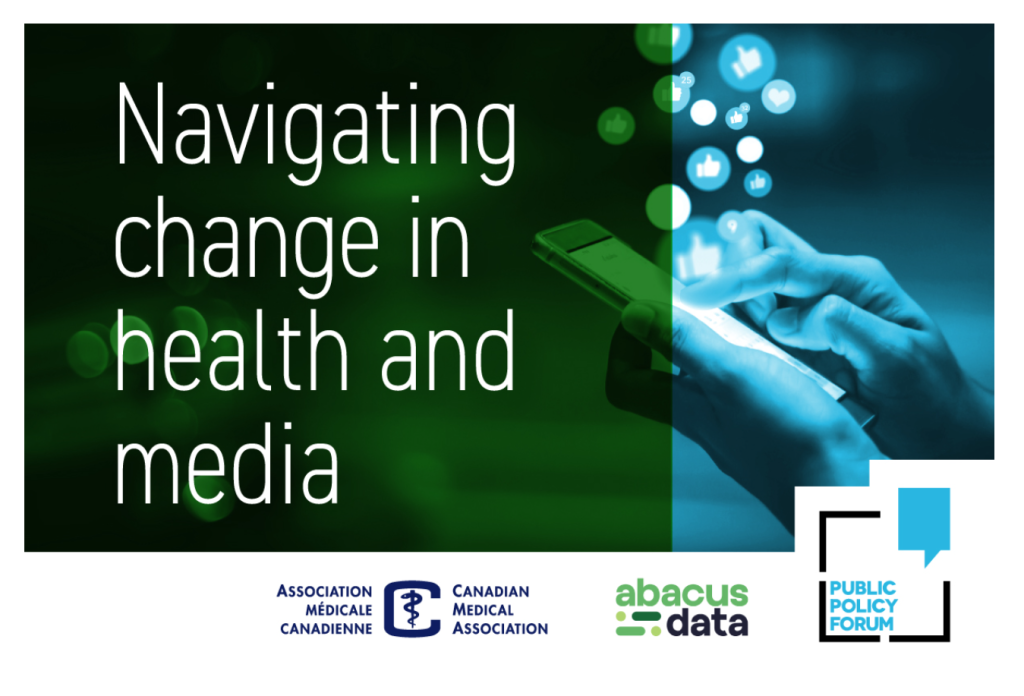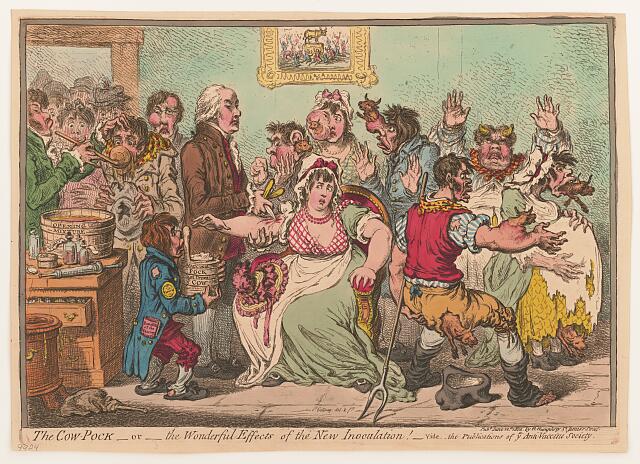
Canadians are seeing an increasing growth in misinformation about health and healthcare online and on social media at exactly the same time as many are losing access to their most trusted source of information on these topics – family physicians.
Attitudes towards misinformation about health was the focus of newly initiated annual survey commissioned the Canadian Medical Association (CMA) on the Health and Media, results of which were just released. These results and virtual webinar discussing the results came just days after the World Medical Association held a virtual panel on the topic of disinformation in health care.
The CMA survey of 2500 adult Canadians conducted by Abacus Data in September, 2023 found that the majority of English respondents (57%) reported having often come across health and health system information that they later found to be false or misleading.
The CMA survey found generational differences in responses, with younger respondents being more likely to use social media platforms to access health news and information. However, only about 20% of those polled said they trust these social media sources to provide accurate information.
In addition, the survey also found that 72% of Canadians believe health-related misinformation is here to stay and is in fact getting worse. And 40% of those polled said such misinformation has led to anxiety or mental distress.
At a time when millions of Canadians no longer have access to a family physician it is concerning that the CMA survey confirmed that physicians are their most trusted source of health information – followed closely by nurses and pharmacists.
Misinformation and social media have been a focus of the CMA since the presidency of Dr. Katharine Smart in 2021-2022. She made the explicit link between the current shortage in family physicians and the impact this had on Canadians being able to access to a trusted source of medical information.
In a podcast in 2021 she stated: “We have assumed that Canadians have access to a trusted source of medical information to make their health decisions. But more and more, that’s not the case. Over 5 million Canadians don’t have access to a family care physician, which has always been that foundational relationship that people have had and that source of trusted health information.” She went on to say this declining access to experts had been coupled with an increasing access to information which, on social media, is often poor.
In this and other presentations, Dr. Smart talked about the need to reimagine the role of physicians and “stepping up” to share accurate health information online and counterbalance misinformation.
At a virtual session to discuss the current CMA poll, current CMA President Dr. Kathleen Ross reiterated the need for physicians to take a more prominent role in promoting accurate health information in online discussions and on social media. She and journalist Wency Leung, who was also part of the session, also said those promoting accurate health information online or on social media should have their voices amplified by the media and other sources.
Misinformation was also the focus of a session held at the CMA Summit last year and featuring Tim Caulfield, Canada Research Chair in Health Law and Policy and arguably one of the country’s most pro-science advocates. Caulfield talked about the politicization of health misinformation, the fact this false information was resulting in people dying, and the need for physicians to take a prominent role in promoting accurate information.
The CMA is taking an explicit role in promoting accurate health information with the launch of CMA Media in 2022. In addition to funding health reporting positions at Canadian Press to promote more accurate health reporting, CMA Media also plans to develop new and innovative ways to connect online with the younger audience singled out in the recent polling results.
Messaging from the CMA and WMA was mirrored in an opinion piece published by a pair of physicians from the Netherlands in the BMJ last August. Drs. Leonard Hofstra and Diederik Gommers argued that “orchestrated social media action organised by doctors, in collaboration with media specialists, can be highly effective at countering misinformation” – a point also made by Dr. Ross.
Despite the growing toxic nature of some social media platforms such as X, Drs. Hofstra and Gommers noted “staying focused on medical aspects, instead of commenting on political issues, increased our impact and helped keep us out of trouble (such as direct threats) while using social media.”
The CMA survey findings are in keeping with a more general survey done by Statistics Canada and reported at the end of last year which showed that 59% of Canadians said they were very or extremely concerned about any type of misinformation online, and 43% felt it was getting harder to determine what was true online compared with three years earlier.
An earlier Statistics Canada survey conducted during the early phase of the COVID-19 pandemic in July 2020, found that 90% of Canadians used online sources for information about COVID-19 and 96% of these saw information online that they thought was misleading, false or inaccurate. Just over half (53%) said they shared this online COVID-19 information without knowing whether it was accurate or not.

